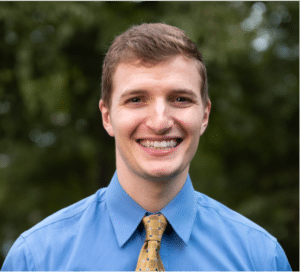About Knight Colman
CFP® Practitioner, CeFT®
Knight Colman is a Certified Financial Planner™ professional, a Certified Financial Transitionist®, and holds his Series 65 license. He is inspired to connect the practical elements of financial planning with each person’s unique human life—their motivations and goals. Prior to joining Colman Knight and obtaining his CFP® certification, he worked at JP Morgan Asset Management in Columbus, OH, where he developed his talents in asset management and honed his skills in operations.
Recognizing the value of structures and reports to facilitate meaningful conversations, Knight quickly mastered the Colman Knight Integral Wealth Portal. His gifts at leveraging intelligent data and producing refined reports are a natural outlet for his proficiency in math and science. At Colman Knight, he specializes in financial planning and investment management and oversees the day-to-day operations.
At Kenyon College he earned a B.A. with a double major in economics and political science and a double minor in chemistry and classics with a public policy concentration. He is an avid sports fan for all the Boston teams and holds a third-degree blackbelt in Kenpo Karate. Knight has a passion for serving underprivileged communities, particularly around financial literacy.
Knight volunteers as a CFP Board Mentor, fulfilling his commitment to give back to the financial planning profession.
We asked Knight to share his passion for economics and political science:
One aspect of economics that always intrigued me was seeing how micro-shifts in any aspect of money can lead to macro-impacts in many aspects of our daily living. For example, a milk shortage in the Northwest Dairy Association can lead to a steep increase in your favorite morning beverage that contains milk. The model of the economy is cause and effect, just like our personal finances reflect the same cause and effect. The challenging and interesting aspect of economics – world and personal – is analyzing the situation to determine what aspects of economics are critical factors and what aspects of our personal choices make the most difference for our well-being.
Humans are just like the economy, we are a cause and effect. The greatest joy I have is being able to figure out people’s inputs and thus lead them to the most sustainable and beneficial output. Theoretically and philosophically, we gain inspiration from asking good questions. Like, why are we here? What do we truly know? How do I live a fulfilled life? How do I assist others to live their fulfilled life?
We asked Knight to share a few thoughts about money, investing and his experience:
Investing is discipline and consistency. Take a year-over-year rate-of-return of 6% with 40 years as an investment timeline, a person would need to invest about $5,000 a year to accumulate $1,000,000 by age 65. The truth about investing and gaining financial freedom is that it comes down to building what I like to call “millionaire habits.” If a person starts saving in their 50s, rather than in their 20s, they need to save a much higher annual number ($42,000) to accumulate the same million by age 65. Many people have the ability to save skillfully and have their money work for them, but do not have the financial acumen to make those decisions or the support of discipline and practice to implement good habits.
All investment philosophies indicate that we should be rewarded for the amount of risk we take in our investing. A Sharpe ratio is a method used by portfolio analysts to measure the risk-reward benefit. The work of a financial planner is to guide and navigate the optimal levels of risk for the unique circumstances of the individual. Being able to cognitively understand the way money works, accumulates and flows, while connecting to the genuine desires and life of another, is my dream. Bringing together my love of puzzles, being challenged to figure out the best answer, and helping people I care about find their happiness, is my purpose and passion.
